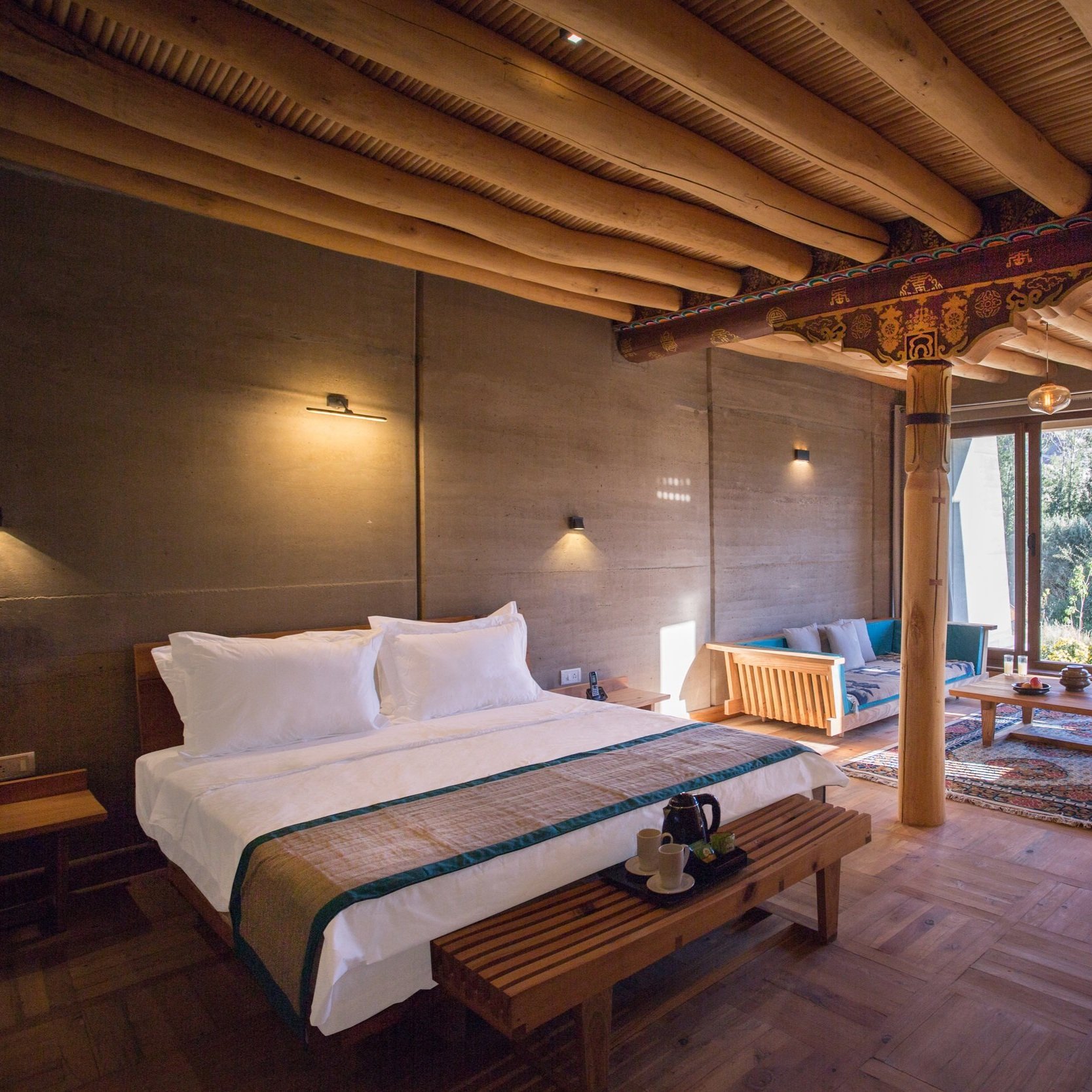
Indigenous Design Leading The Way in Sustainable Innovation
One innovator leading the way in sustainable innovation at 3500m above sea level is Norboo Wangchuk, Managing Director and owner of Ladakh Eco Resort in the Himalayan region of India.
Nestled in the heart of a 100-year-old village, Spurka, Ladakh Eco Resort is a sustainable luxury resort surrounded by one of the world's highest motorable roads, Khardung-La Pass on one side and the mighty Stok Kangri on the other. Spread across 2 acres and surrounded by the vibrant colors of hollyhocks, wild lilies, and liliums, the resort has only 14 cabins, each looking raw and spectacular under the clear blue sky.
But what gives these cabins such rugged beauty?

Can Family Vacations Teach Children to Save Our Oceans?
Our oceans, covering over 70% of the planet's surface and housing 80% of Earth's biodiversity, are in crisis due to human activities like overfishing, offshore drilling, pollution, and carbon emissions, threatening marine life and coral reefs.
Alarming statistics from UNESCO indicate that more than half of the world's marine species could face extinction by 2100, underscoring the urgent need for conservation efforts.
Family vacations offer a unique opportunity to instill marine conservation values in children. Resorts such as Six Senses Laamu’s Junior Marine Biology Program, Soneva’s comprehensive courses for young ocean enthusiasts, AYANA Komodo Waecicu Beach’s coral conservation initiatives, and Hyatt Regency Phuket's marine conservation workshops engage and empower young minds to become future ocean stewards.
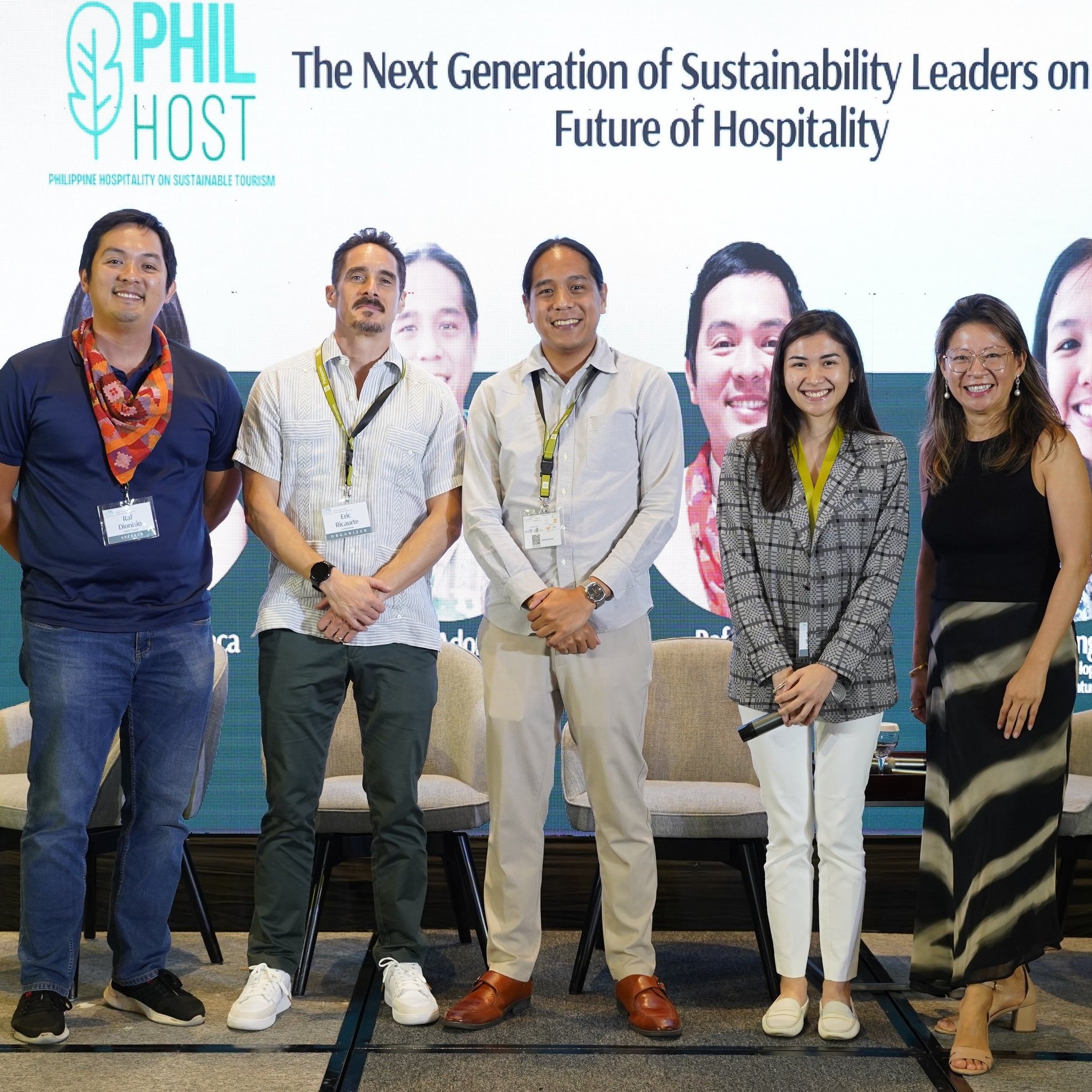
The Future of Hospitality: Lessons from Asia’s Next-Gen Sustainability Leaders
One of the notable topics at the "Philippine Hospitality on Sustainable Tourism" conference held on May 24, 2024 was "The Next Generation of Sustainability Leaders on the Future of Hospitality." This panel provided a platform for industry innovators to share their forward-thinking strategies, setting a powerful vision for what the tourism sector can aim to accomplish.
Esteemed speakers such as Raf Dionisio, Co-founder of MAD (Make A Difference) Travel; Samantha Manigsaca, AVP for Hospitality and Director of AppleOne Properties, Inc.; and Architect Mar Adonis Uy, Project Director of Oceanica Resort Panglao (formerly South Palms Resort Panglao), presented compelling insights into community-based tourism, waste management, and agro-tourism—a form of tourism that involves agriculturally based activities.
This article captures the key takeaways from the panel, showcasing how these trailblazers are shaping a more sustainable future for the hospitality industry.
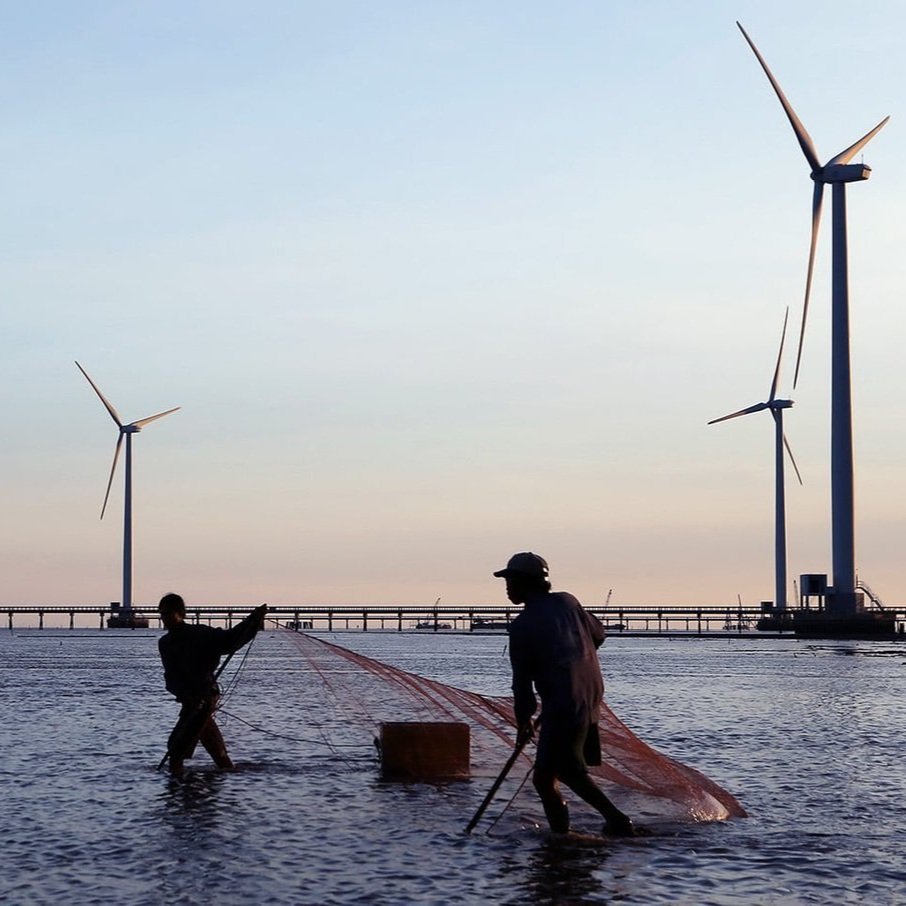
The Travel Industry's Carbon Conundrum: 5 Uncomfortable Facts
Behind the glamor of international flights and luxury accommodations lies a pressing concern: greenhouse gas (GHG) emissions.
The travel industry faces an inconvenient truth: its environmental impact must be addressed.
We acknowledge that GHG emissions and GHG-related topics are a set of complex issues. I hope that by sharing our observations and learnings with you as openly and honestly as we can, we'll be able to accelerate the industry's transition to the new climate economy.
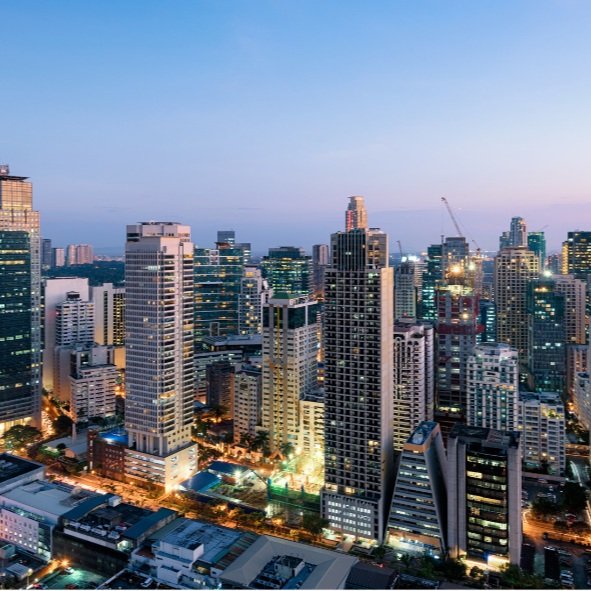
Sustainability in Motion: 11 Key Insights from AST Forum in Manila
The recent Asia Sustainable Travel (AST) Forum in Manila exuded responsibility and eagerness as industry leaders and enthusiasts gathered to share insights, experiences, and visions for a greener travel future.
During his welcome message, Den Navarro, Savoy Hotel Manila’s General Manager, highlighted the significance of discussing sustainability in travel. Cleo Albiso, Managing Director of Megaworld Hotels and Resorts (MHR), shared innovative ideas driving MHR towards greener operations. Susan Santos de Cardenas from Green Destinations discussed the future of hospitality, focusing on People, Planet, and Profit.
Here are the key takeaways from the AST Forum - Manila.

Advanced Design Strategies for Climate-Conscious Hotels
Sustainable design is changing the game for what hotels can be, and it's so much more than just switching to energy-saving bulbs or eliminating single-use plastics. It's about a whole new way of thinking—how hotels and their environment can work together in harmony, from choosing local materials that are tough and resilient yet kind to the planet to smarter ways of handling waste, water, and energy, all the way to how they collaborate with local communities. It's a fresh take on hospitality that's all about respecting Mother Earth.
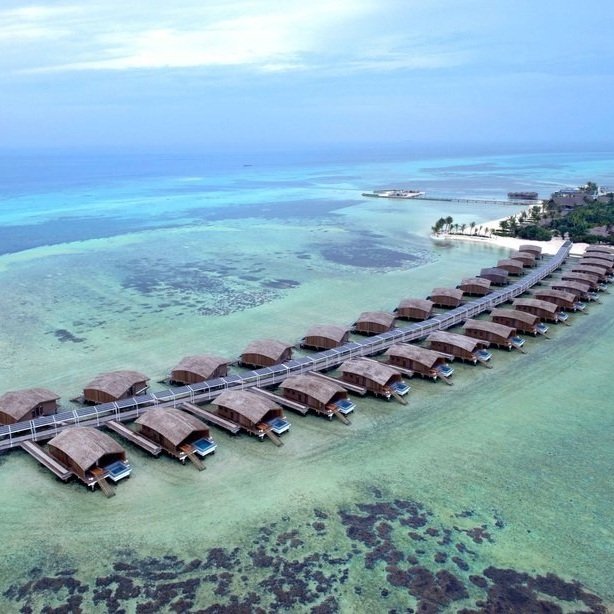
The Race to Net Zero: Clean Energy Transition Challenges and Strategies for Hotels
Reducing carbon emissions is the number one remedy to fight climate change. With the energy sector accounting for over 70% of global carbon emissions, it is important to address this head-on.
A recent study by the International Tourism Partnership suggests that the global hospitality industry must decrease emissions by 66 percent by 2030 to limit global warming to no more than two degrees Celsius, which is the threshold as outlined in the Paris Climate Accords.

Mapping a Greener Path: Sustainability Insights from the Hotel + Accommodation Industry Summit, Philippines
The Hotel + Accommodation Industry Summit Philippines 2024 gathered nearly 300 hospitality and travel professionals alongside regional solution providers to deliberate on the hotel landscape, investments, market performance, and imminent challenges.
Innovation and sustainability were the focal points that steered the majority of discussions during the summit. The event emphasized important aspects of industry growth in the Philippines, such as the latest hotel and tourism developments, industry trends, and best practices.

Feeding Innovation: Inside Hospitality's Fight Against Food Waste
On a global scale, approximately one-third of all food produced for human consumption goes to waste, yet hunger afflicts one in ten, according to the United Nations agencies.
This paradox is even more pronounced in Asia, where 375 million people grappled with hunger in 2020, a number larger than the entire population of the United States. The COVID-19 crisis has only worsened the crisis.
Moral reasons aside, food waste emits methane upon decomposition, contributing to global warming. If quantified as a nation, food waste would rank third in carbon emissions, trailing only the US and China, per the World Food Programme.
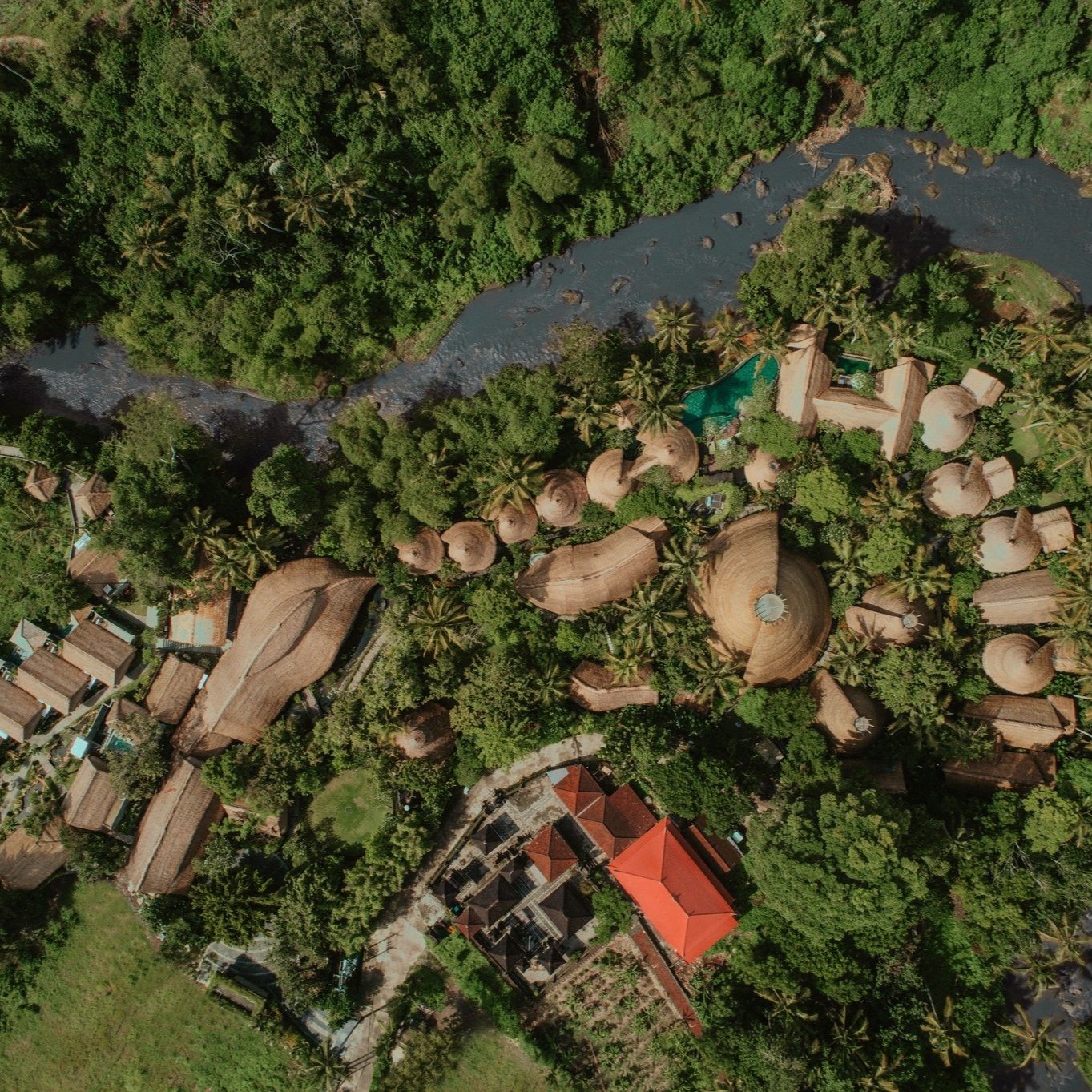
Four Takeaways From Bali’s Sustainability-Led Hotels Visit
Bali’s natural beauty and unique cultural assets, together with a creative and entrepreneurial tourism community that is open to experimentation and collaboration, have created a multitude of exciting products that cater to different traveler preferences.
This magical formula has made Bali one of Asia’s most popular tourist destinations.
At the same time, Bali has always been Asia’s breeding ground for novel tourism practices.
Sustainable tourism practices tested in Bali have the potential to attract attention and be implemented in other destinations across Asia and beyond.
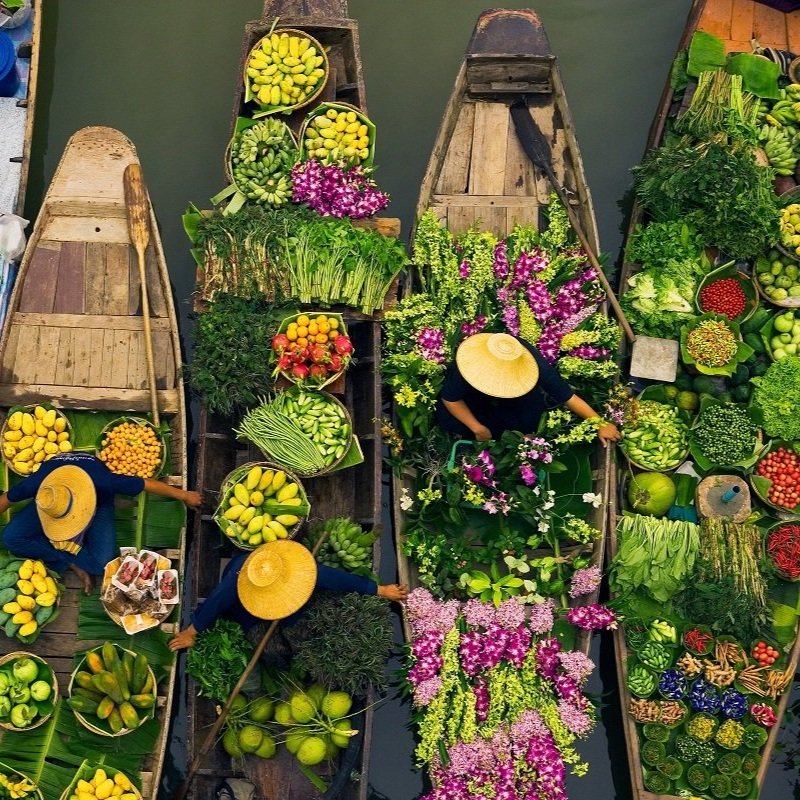
What Hospitality Businesses Must Know To Support Sustainable Food Systems, in 3 Charts.
Hospitality businesses have a superpower: they can choose where they get their food from, and what kind of food and experience they serve to people.
The Travel & Tourism sector generated 7 trillion USD, representing 7.6% of the global GDP, according to the recent figures published by the World Travel and Tourism Council (WTTC).
In 2019, the tourism sector was responsible for 1 out of every 4 newly created jobs, as reported by the International Labor Organization.
Asia accounts for half of the global food market, and the growing appetite for beef in many of its emerging middle-income countries has resulted in deforestation of the Amazon.
When a hotel or restaurant decides to prioritize locally sourced, sustainably produced ingredients, it sends a message to suppliers and farmers that there is demand for such products.
At the same time, it plays a key role in informing consumers of conscious consumption.

Can Thailand Celebrate Songkran Water Festival and Still Be Eco-Friendly?
As global festivals face increasing scrutiny for their environmental impact, Thailand's Songkran festival is at a pivotal moment between preserving cultural heritage and promoting sustainability. This year, as the festival draws global attention for its extended observance, efforts to balance traditional celebrations with eco-friendly practices take center stage. Through interviews with key figures in the tourism and hospitality sectors, we explore innovative approaches to reducing water wastage while keeping the festival's spirit alive.
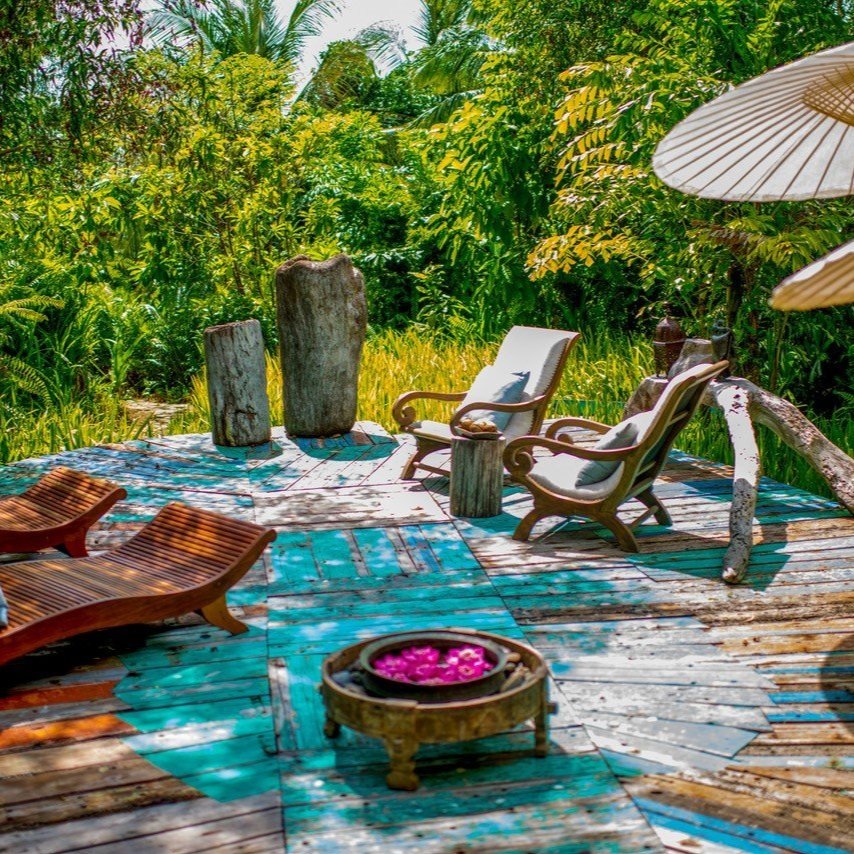
Turning Trash to Treasure: 5 Strategies to Revolutionize Waste Management in Hospitality
Effective and sustainable waste management in the travel and hospitality industry is a vital issue that requires attention.
Hotels and resorts, in their pursuit of providing exceptional guest experiences, generate significant amounts of waste, contributing to an escalating global problem.
But what if we could change this narrative? What if hotels become part of the solution instead of contributing to the problem?
By implementing innovative waste management strategies, hotels can minimize their carbon footprint and unlock new avenues for cost savings and even revenue generation through the sale of recycled products.
This approach can also help hotels increase their appeal to the growing number of eco-conscious travelers seeking more sustainable travel options. Ultimately, it leads to building a positive brand reputation, spreading word–of–mouth, and increasing customer satisfaction.
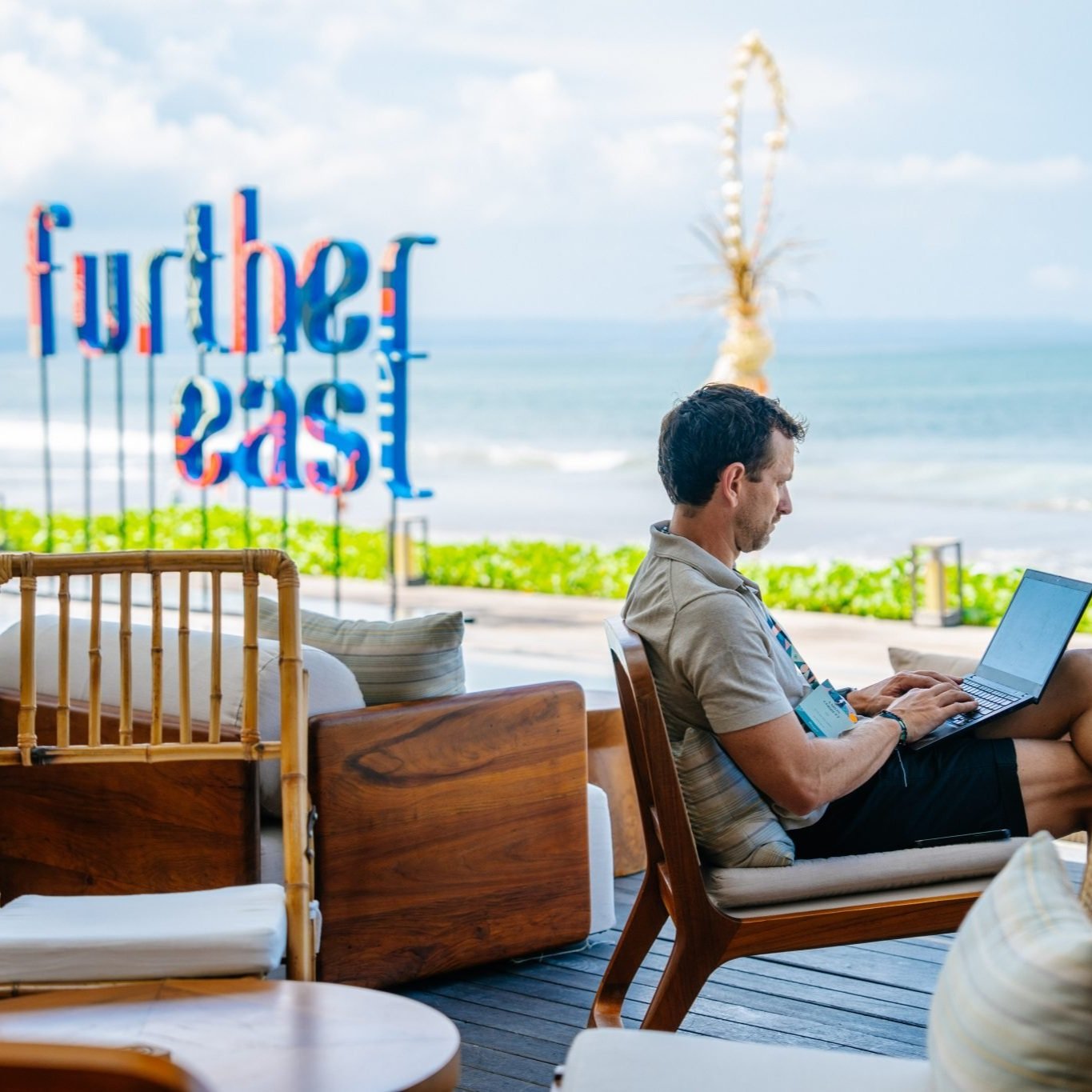
Is APAC’s Premier Travel Show Primed to Take Lead in Sustainability Transformation?
This Is Beyond brought Further East back to Seminyak, Bali for its 4th installment in November 2023. This was perhaps its largest gathering yet, connecting Asia’s world-class hotels and destinations with travel advisors and media from all around the world.
It was the Open House on day 1 that offered some of the most inspiring conversations of the entire 4-day show.
Kicking off this year’s theme, “Right here. Right now.”, the Open House featured an agenda of presentations and panel discussions guided by the principles of Inspire, Spark, and Progress.
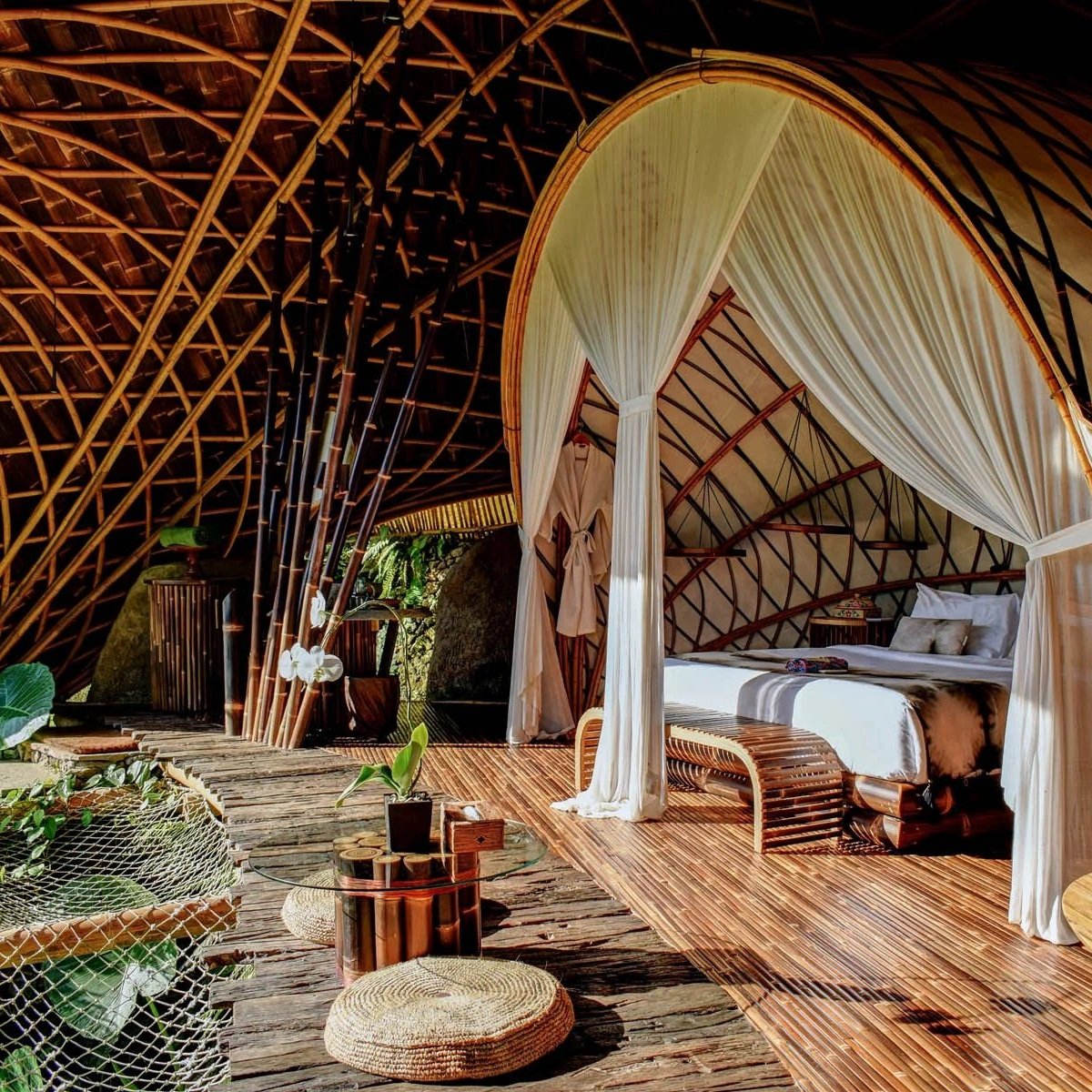
Breaking Bamboo Boundaries: Elora Hardy's Visionary Nature-led Designs Redefine Luxury
The influence of the Hardys extends far beyond the deep blue waters surrounding the island of Bali. They garner international recognition for their ‘ecologically mindful’ bamboo structures in the sustainable design community.
One of the driving forces behind the Hardy family is Elora Hardy, the Founder and Creative Director of IBUKU, a cutting-edge design and architecture studio in Ubud. In her role, Elora has not only carved a niche for herself and her family’s business but has also elevated Bali's architectural landscape to new heights.
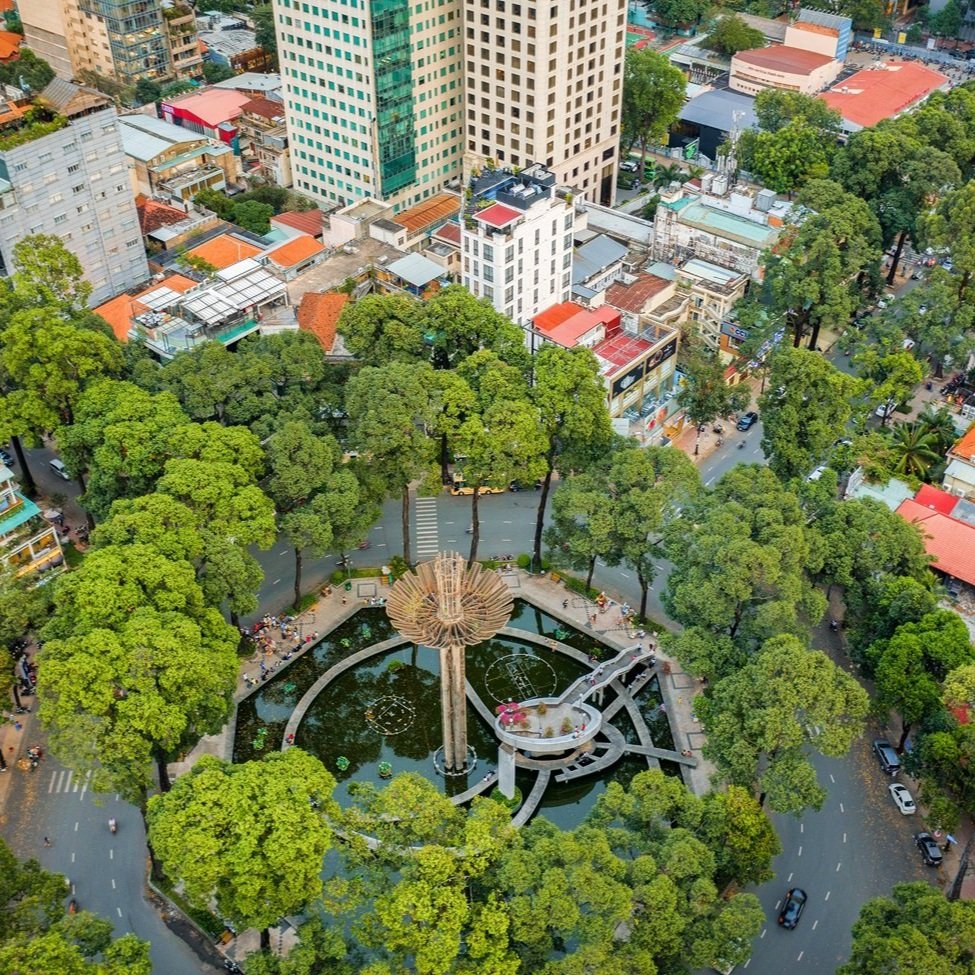
Navigating Sustainability in Vietnam's Hospitality & Travel Industry: Key Takeaways from AST Forum in Ho Chi Minh City
As the sun dipped below the bustling skyline of Ho Chi Minh City, the tranquil elegance of Bach Suites Saigon cast a warm glow upon the eager faces of travel and hospitality professionals who had gathered for the ASTB Mixer.
The event was no ordinary mixer, but a confluence of ideas on sustainable travel. The excitement was palpable as industry experts and enthusiastic newcomers came together, each carrying an air of curiosity and a shared commitment toward sustainability.
This article unfolds the enlightening encounters and key takeaways from an evening that proved to be more than just a casual meet-up but a harbinger of a sustainable future in Vietnam travel.

